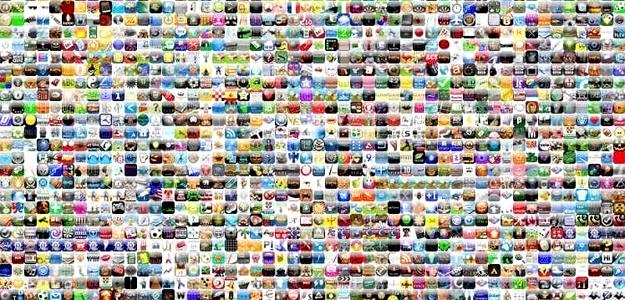 In the world of 21st-century marketing, having your own mobile app has become as ubiquitous as having a blog or a Twitter account; everyone has an app these days. An app may serve a valuable purpose for your customer base, such as the insurance apps that let you photograph damage from an accident. That’s a great idea. Some apps simply spread the brand, providing little to no functionality.
In the world of 21st-century marketing, having your own mobile app has become as ubiquitous as having a blog or a Twitter account; everyone has an app these days. An app may serve a valuable purpose for your customer base, such as the insurance apps that let you photograph damage from an accident. That’s a great idea. Some apps simply spread the brand, providing little to no functionality.
Case in point: Major League Eating.
On Independence Day, I plopped myself down to watch the premiere example of American gluttony, Nathan’s Hot-Dog Eating Contest. The contest is, of course, the major event on the Major League Eating schedule. It’s their Daytona 500. Their Masters. Their Super Bowl. The fact that they seemed to have only one sponsor during the commercial breaks was slightly embarrassing. The fact that the one sponsor was their own iPad app was even worse.

I’m not sure this is what Steve Jobs had in mind when he gave birth to the App Store, but the eating contest made me think about just how many truly inane apps are available for our mobile phones and tablets.
Approximately 650,000 apps appear in Apple’s App Store (250,000 or so native to the iPad). Google claims that more than 500,000 apps and games are available on its Play Store. Obviously, uselessness is in the eye of the beholder. I would venture to say, however, that we have all brought up the “most popular” lists in either ecosystem and wondered how some of those apps got there and then immediately blamed teenagers.
Such is the case when I trek through the Play Store list and find, as the No. 50 most popular free app, Beat Your Boss. Apparently you get to virtually pummel a restrained man who supposedly looks like the prototypical boss (think Lumbergh from Office Space with a receding hairline). He eventually develops black eyes and bruises. The blurb says the app was developed for people who have trouble managing their anger. Surprisingly, I saw no mention of an endorsement by the American Psychiatric Association.
Some well-known brands have decided to enter the useless app fray as well.
As a Southern boy, I love Cracker Barrel restaurant. My mama would slap me if I said a disparaging word about that fine purveyor of biscuits and gravy. I think I’m still allowed to talk about the chain’s app, however. Guess what the app does… it shows you the Cracker Barrel nearest to your location! Just as if you pulled up the maps function and typed in…I don’t know…Cracker Barrel?
More entertainment ensues when you read the comments about the app. I don’t know who is more deluded, the people who gave it five stars because “this is my favorite restaurant ever!” or the people who gave it one star because they were expecting more functionality. It’s not like the app was going to bake biscuits for you.
I’m thankful both of those apps happen to be free. Unfortunately, if you thought paying for apps would thin the herd, you’re sadly mistaken.

Comment No. 3 – “It’s not a real tazor [sic]” (one star).
I hope that person didn’t learn Real Tazer was a simulation during a robbery attempt.
People revel in the Internet’s openness and, like me, are committed to defending it against censorship. But as someone who has spent the past five years with teenagers and hearing them discuss their latest app distractions (everything from the great Temple Run to the mind-numbing Logo Game), I think people sometimes need to be protected from downloading stupid stuff. Apple and especially Google should ask themselves one simple question before admitting any app into their stores: Does this app serve any useful purpose for society? Yes, entertainment is a useful purpose, but you can’t tell me Real Tazer is fun after the first attempt at shocking someone.
Now if Beat Your Boss would let me superimpose a picture of my actual boss, that would be fun….


